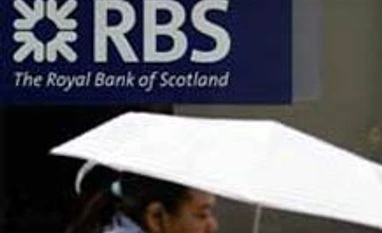Royal Bank of Scotland predicted today that the government should be able to start selling its stake within a year, as it reported a first-quarter profit of 393 million pounds ($611 million), up from a loss of 1.5 billion a year earlier.
CEO Stephen Hester said cleanup of the troubled bank, which is 81% owned by the British taxpayer after it was rescued by the government in 2008, would be largely complete by the middle of 2014. That means RBS could be privatised and look "much more like a normal bank," it said.
The timing of the sale, however, remains up to the government.
Hester told analysts it was unlikely the government would sell its entire stake in a single transaction particularly as the government also has a stake in another bank, Lloyds, that also needs to be sold.
Hester said the taxpayer might get a return over time on average over multiple transactions. But he said he thought that privatisation would send an important message to the British people.
"Privatisation would be a symbol of recovery for the UK, " he said.
Britain's next general election is set for 2015, so a sale shortly before then would send a powerful signal that the economy had improved. Hester did not address timing except to say that it was in the end a political decision which the bank "won't get to vote on one way or another."
"Obviously, it's not my job to decide how public money is spent. I think most people believe enough public money has been spent on RBS and are looking forward to getting it back," he said.
Though it was the bank's first quarterly profit since 2011, analysts say operating profit was below expectations and shares were down 5.8% at 290, well off the 410 pence it would take for the government's investment to break even.
Some analysts suggest the break-even point is really higher, at around 505 pence, because extra costs.
Analysts were not impressed. Richard Hunter, head of equities at Hargreaves Lansdown Stockbrokers, said a possible sale of the government stake adds to other concerns, such as regulatory intervention, that are weighing on the share price.
"The market consensus has recently improved marginally from a sell to a weak hold, but investor patience seems to be wearing thin and the general view could now come under renewed pressure," he said in a statement.
CEO Stephen Hester said cleanup of the troubled bank, which is 81% owned by the British taxpayer after it was rescued by the government in 2008, would be largely complete by the middle of 2014. That means RBS could be privatised and look "much more like a normal bank," it said.
The timing of the sale, however, remains up to the government.
More From This Section
"When it comes we will be ready," Hester told analysts in a morning conference call. "But it is a decision for others." The question of when the shares are sold is important because it will determine whether taxpayers get their money back or take a loss on their investment in the bank.
Hester told analysts it was unlikely the government would sell its entire stake in a single transaction particularly as the government also has a stake in another bank, Lloyds, that also needs to be sold.
Hester said the taxpayer might get a return over time on average over multiple transactions. But he said he thought that privatisation would send an important message to the British people.
"Privatisation would be a symbol of recovery for the UK, " he said.
Britain's next general election is set for 2015, so a sale shortly before then would send a powerful signal that the economy had improved. Hester did not address timing except to say that it was in the end a political decision which the bank "won't get to vote on one way or another."
"Obviously, it's not my job to decide how public money is spent. I think most people believe enough public money has been spent on RBS and are looking forward to getting it back," he said.
Though it was the bank's first quarterly profit since 2011, analysts say operating profit was below expectations and shares were down 5.8% at 290, well off the 410 pence it would take for the government's investment to break even.
Some analysts suggest the break-even point is really higher, at around 505 pence, because extra costs.
Analysts were not impressed. Richard Hunter, head of equities at Hargreaves Lansdown Stockbrokers, said a possible sale of the government stake adds to other concerns, such as regulatory intervention, that are weighing on the share price.
"The market consensus has recently improved marginally from a sell to a weak hold, but investor patience seems to be wearing thin and the general view could now come under renewed pressure," he said in a statement.
)